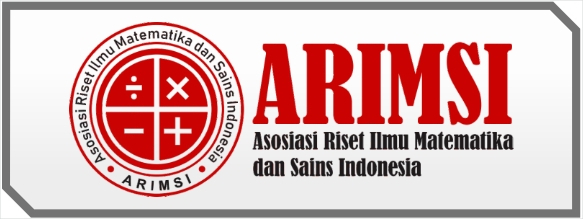Reinterpretasi Hukum Islam terhadap Pembagian Warisan Bagi Anak Pasca Kematian Orang Tua
DOI:
https://doi.org/10.55606/sscj-amik.v2i3.3305Keywords:
Islamic Law Review, Children, Death of ParentsAbstract
In the modern era, social dynamics continue to develop, including in terms of inheritance distribution. The issue of dividing inheritance for children after the death of parents is increasingly complex, with various factors that need to be considered. This journal aims to answer and analyze the comparison of the inheritance process for GS as an only child upon the death of both parents according to the Islamic legal system that applies in Indonesia and ensure that Islamic law remains relevant and in accordance with the needs of children in modern times. This journal uses a qualitative approach with literature study methods and critical analysis. Data is collected from various sources, including scientific journals, news articles, and research reports. Research findings show that the distribution of inheritance to children after the death of parents is influenced by various factors, such as social norms, culture, religion and law. This journal refers to efforts to reinterpret Islamic law regarding the distribution of inheritance to children after the death of parents by considering the current social, cultural and political context. Current social dynamics, such as changes in family structure, individualism, and globalization, also influence the inheritance distribution process. The division of inheritance in this journal takes a deeper look at inheritance rights to GS. The condition of GS, who is still a child, is not legally competent to take legal action. In this case, GS's grandfather and grandmother from BA are the guardians based on the paternal lineage attached to them who are the guardians. Further research is needed to understand the complexity of inheritance division in different social contexts. It is necessary to provide education and outreach to the public about the importance of proper inheritance planning and in accordance with applicable social norms and Islamic law.
References
Abdillah, Muhammad Alwin, and M. Anzaikhan. “Sistem Pembagian Harta Warisan Dalam Hukum Islam.” Al-Qadha : Jurnal Hukum Islam Dan Perundang-Undangan 9, no. 1 (2022): 285–305. https://doi.org/10.32505/qadha.v9i1.4134.
Aksin, Nur, Rahmat Robi Waliyansyah, and Nugroho Dwi Saputro. “Sistem Pakar Pembagian Harta Waris Menurut Hukum Islam.” Walisongo Journal of Information Technology 2, no. 2 (2020): 115. https://doi.org/10.21580/wjit.2020.2.2.5984.
Aufiqurrahman, „Kompilasi Hukum Islam Suatu Formalisasi Syariat Islam Di Indonesia‟, AL-IHKAM: Jurnal Hukum & Pranata Sosial, 1.2 (2019) <https://doi.org/10.19105/allhkam.v1i2.2559>.
Diana Anisya Fitri Suhartono, Naysha Nur Azizah, and Claressia Sirikiet Wibisono. “Sistem Pewarisan Menurut Hukum Perdata.” Jurnal Hukum, Politik Dan Ilmu Sosial 1, no. 3 (2022): 204–14. https://doi.org/10.55606/jhpis.v1i3.921.
Diana Anisya, Naysha Nur Azizah, "Sistem Pewarisan Menurut Hukum Perdata", Jurnal Hukum, Politik dan Ilmu Sosial, 1 no.3 (2022) :209 diakses pada https://ejurnal.politeknikpratama.ac.id/index.php/jhpis/article/view/921
Dianti, Yira. “Pembagian Harta Warisan Telah Pembagian Warisan Oleh Pewaris Kepada Ahli Waris Sebelum Pewaris Meninggal Pada Masyarakat Bima.” Angewandte Chemie International Edition, 6(11), 951–952., 2017, 5–24. http://repo.iain-tulungagung.ac.id/5510/5/BAB 2.pdf.
Duri, Nur Fika. “Pandangan Tokoh Agama Terhadap Tradisi Pembagian Waris Dengan Menjadikan Anak Tunggal Sebagai Pewaris Harta Keseluruhan.” Journal of Families Studies, 5, no. 2 (2021).
Hartawati, Elvi Susanti Syam, and Tarmizi Tarmizi. "Pembuatan Surat Wasiat Terhadap Ahli Waris Dalam Masyarakat." Journal of Lex Generalis (JLG) 3.9 (2022): hlm. 1557-1569.
Jainuddin, "Pembagian Harta Warisan telaah pembagian warisan oleh pewaris kepada ahli waris sebelum pewaris meninggal pada masyarakat Bima" Jurnal Pemikiran Syariah dan Hukum, 4 no. 2, (2020): 303, diakses pada link https://ejournal.iaimbima.ac.id/index.php/sangaji/article/view/494
MRizky, Aminudin. “Kedudukan Hukum Hak Asuh Dan Hak Waris Anak Yatim Piatu Yang Masih Di Bawah Umur.” Paper Knowledge . Toward a Media History of Documents 8, no. 2 (2020): 12–26.
Muhammad Alwin Abdillah, " Sistem Pembagian Harta Warisan dalam Hukum Islam ", Jurnal Hukum Islam dan Perudang-undangan, 9 no. 1 (2029):285, diakses pada link https://journal.iainlangsa.ac.id/index.php/qadha
Nuzulia, Atina. “Penetapan Hak Waris Orang Yang Mati Bersama Dalam Perspektif Hukum Islam.” Angewandte Chemie International Edition, 6(11), 951–952. 6, no. 1 (1967): 5–24.
Pawana, Sekhar Chandra. “Pewarisan Kepada Anak Tunggal Atas Kematian Kedua Orang Tua.” Jatijajar Law Review 1, no. 1 (2022): 25. https://doi.org/10.26753/jlr.v1i1.724.
Tarmizi, Tarmizi. “Upaya Penyelesaian Konflik Pembagian Harta Warisan Masyarakat Di Indonesia.” Al-Adl : Jurnal Hukum 16, no. 1 (2024): 41. https://doi.org/10.31602/al-adl.v16i1.9701.
Downloads
Published
How to Cite
Issue
Section
License
Copyright (c) 2024 Student Scientific Creativity Journal

This work is licensed under a Creative Commons Attribution-ShareAlike 4.0 International License.






















